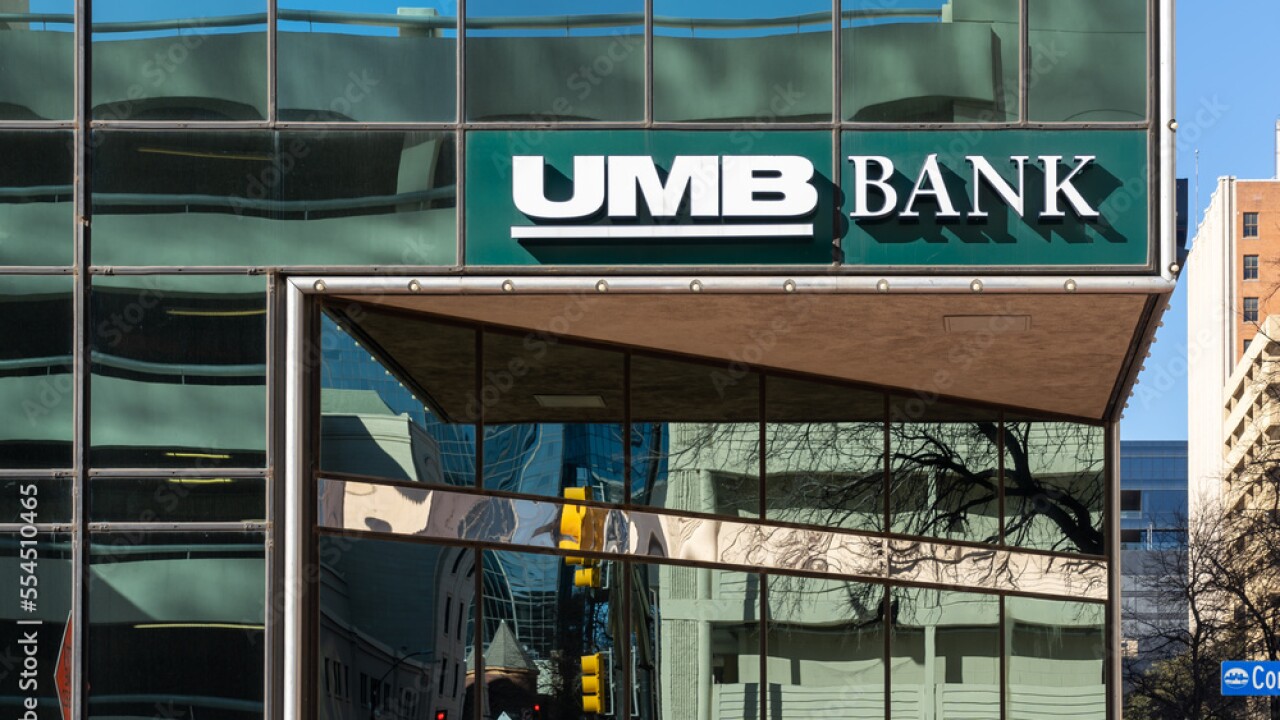Bankers who breathed a sigh of relief as trade tensions between the U.S. and China began to ease at the end of last year are on edge again as the spread of the coronavirus is threatening to close off the world’s second-largest economy.
Analysts and economists have outlined several ways the industry could feel the impact from the crisis, which is not just limited to megabanks looking to break into the recently opened financial markets in China. Regional banks are also bracing for any impact to their commercial clients who depend on open trade routes and are combing through their portfolios for any risks.

“For U.S. banks, if coronavirus contagion rates increase or persist enough to lower U.S. or global growth, we could see slower demand for loans and M&A and debt origination, which may translate into weaker earnings,” Ana Arsov, managing director of Moody’s Financial Institutions Group, said in an email Tuesday.
New commercial worries
The virus has killed 425 people in China as of Tuesday, and Hong Kong confirmed the second death off the mainland,
Analysts at Keefe, Bruyette & Woods said in a research note Monday that most of the focus on the coronavirus’ impact to the U.S. banking sector would be on commercial loans “given the high level of leverage in the business sector.”
"I did recently talk to a commercial banker who banks a business in the U.S. that is dependent upon Chinese-made parts, and the owner is really worried about supply chain disruptions,” said John Blanchfield, an industry consultant at Agriculture Banking Advisory Services.
Truist Financial Chairman and CEO
“There are a lot of people around the world being hurt, a lot of people are dying, and we've got to really hope that that does not become a global systemic issue,” King said.
Scott Colbert, chief economist at Commerce Trust Co., a division of the $26.1 billion-asset Commerce Bank in St. Louis, said Tuesday that the ripple effects from the coronavirus “will be material” and more lasting than in 2003 during the outbreak of the severe acute respiratory syndrome, or SARS. China’s economy has boomed since then, tying more U.S. businesses to its growth.
Still, Colbert said it was likely any worries would be limited to the near term.
“This continues the theme that you get these little pockets of headaches that allow the economic expansion to continue because it gets to slow down a little bit to prevent overheating,” Colbert said.
JPMorgan restricts travel
The outbreak of the virus comes as JPMorgan Chase is making a push into China’s once closed-off banking market.
The $2.6 trillion-asset bank received final approval in December to take a large stake in a Chinese securities firm, after China had long barred foreign financial institutions from owning controlling interests in firms there. JPMorgan was the first U.S. bank to gain such a foothold.
The bank is planning to focus this year on expanding its corporate and investment banking operation as well as an asset management business in China.
JPMorgan is taking “preventative measures” as officials work to contain the virus, a spokesman said in an email Tuesday.
“We are complying with travel restrictions and have banned travel to and from mainland China,” the spokesman said. “Since last week, we also have required any employees who have visited mainland China to work from home for 14 days upon their return.”
The bank is also restocking hand sanitizers and bulking up its cleaning efforts in its offices across Asia, the spokesman said.
Energy, ag lenders take another punch
The spread of the virus has also pinched agriculture and energy farmers that had already been confronting downturns in their markets.
Oil prices have plunged to their lowest level in a year as the outbreak has threatened future demand if major economies across the world begin to slow. WTI crude prices dropped below $50 per barrel on Tuesday and has fallen more than 21% over January.
But because energy lenders have been dealing with sagging oil prices going back to last year, many have already tightened underwriting standards to guard against further downturns, said Don Radtke, portfolio manager for the advisory firm Tributary Capital Management.
“If oil were to dip below $40 and stay there for a couple weeks that would cause some concern,” Radtke said. “Given the gyrations in the oil and gas markets, I would imagine lenders are cautious with the expectations they have put out there.”
The virus is hitting China just as the country was preparing to renew more agriculture purchases from U.S. farmers after signing a preliminary agreement with the U.S. to relieve trade tensions. Many farmers are meeting with their banks this month to set up new financing for the planting season to come this spring.
U.S. farmers have depended upon $28 billion in trade assistance from Washington over the past two years to make up for lost revenue on their crops. Soybean prices have declined by more than 8% since the start of the year. Blanchfield said 2020 could bring another year of government support if prices remain low.
“I would much rather be a seller to China, like agriculture, than a buyer of Chinese-made goods” who is facing supply-chain risks, Blanchfield said.
Radtke echoed the optimism about U.S. exporters to China whether it be soybeans or oil and the banks that lend to them.
“This coronavirus is a situation where people are trying to get their arms around it,” Radtke said. “Often in that situation the worst fears are reacted to. In a couple weeks, we could put all this behind us.”
Allissa Kline contributed to this article.




